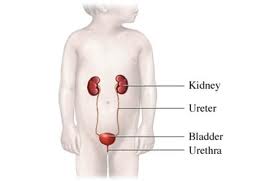How to Treat Jaundice in New Born Baby
June 21, 2013 by admin
Filed under Baby Problems
 Jaundice is a common condition in infants, affecting over 50% of all newborns. Jaundice is common for premature babies- more often in boys than girls. It appears mostly in the first week of life.
Jaundice is a common condition in infants, affecting over 50% of all newborns. Jaundice is common for premature babies- more often in boys than girls. It appears mostly in the first week of life.
Infant jaundice is also known as physiological jaundice , a condition in which the baby’s skin, and the sclera (white part of the eye) appears yellow.
Symptoms of jaundice in new born baby
Apart from yellowing skin and eyes, other symptoms of infant jaundice include:
- Drowsiness
- Poor sucking/feeding
- Itchy skin
- Pale stools – breastfed babies should have greenish-yellow stools, while those of bottle fed babies should be a greenish-mustard color.
- Dark urine – a newborn’s urine should be colorless
Causes for jaundice in new born baby
A baby in the womb is totally dependent on his/her mother for food and oxygen, which reach the umbilical cord that connects him/her to the mother. The distribution of oxygen through the baby’s body is aided by the additional red blood cells present in the baby’s blood. After birth, the baby begins to breathe through his/her lungs and hence, does not need the additional red blood cells. His/her body will start disposing off the extra cells, soon after birth. These red blood cells are destroyed in spleen. A major by-product, thus produced, is bilirubin. The liver removes the bilirubin from the bloodstream and passes it on to the intestines of the baby.
Since the infant’s liver is still in its developing stage, it is unable to manage the sudden increase in bilirubin, during the first few days post birth. As a result, large amounts of bilirubin mixes in the blood, thereby, making the baby’s skin appear yellowish, which is a symptom of jaundice. During pregnancy the fetus’ blood bilirubin is removed by the mother’s liver. Although it is natural to find newborns suffering from jaundice in the first few days post birth, a high concentration of bilirubin in the blood is considered a serious case. In such a situation, you should get the condition monitored by the doctor.
There are several underlying factors for jaundice in new born baby. Some reasons include:
- Liver disease.
- An abnormality of the baby’s red blood cells.
- Blocked bile duct or bowel.
- Sepsis – a blood infection.
- Rhesus incompatibility – when the mother and baby have different blood types, the mother’s antibodies attack the baby’s red blood cells.
- Enzyme deficiency.
- Bacterial or viral infections.
- Hypothyroidism – underactive thyroid gland.
- Hepatitis – an inflammation of the liver.
Treating jaundice in new born baby
- Breastfeeding is one of the most effective ways to reduce the amount of bilirubin in the blood of the newborn, because mother’s milk contains some of the important nutrients required for the development of the baby’s functional organs. Initiate the breastfeeding relationship as soon as possible after birth. Breast-feed your baby every two hours post birth. Frequent feeding can help the baby pass the excess bilirubin through his poop and thus, reduce the jaundice symptoms.
- Sunbath is an effective remedy to treat jaundice in newborns. Remove the clothes of your baby and place him/her under direct sunlight or in a warm room for about 10 minutes. The best time to sunbathe the baby is early morning hours, between 7 am and 8 am. Lay your baby on a blanket, under the window, so that the sun’s rays bathe his/her entire body. Be sure to block your newborn’s to avoid direct sunlight.
 In case the levels of bilirubin in your infant’s blood are high, the doctor will administer phototherapy to treat the problem. During the treatment, your baby will be monitored under ‘special lights’ at the hospital, for 24 hours or 2 days. Usually the baby is naked, wearing only protective eye patches. The special lights will eliminate jaundice by reducing the bilirubin levels. The baby is put under a special light, covered by a plastic shield to filter out ultraviolet light, that influences the structure of bilirubin molecules so they can be excreted; sometimes it is useful to use a light-emitting mattress under the baby as well.
In case the levels of bilirubin in your infant’s blood are high, the doctor will administer phototherapy to treat the problem. During the treatment, your baby will be monitored under ‘special lights’ at the hospital, for 24 hours or 2 days. Usually the baby is naked, wearing only protective eye patches. The special lights will eliminate jaundice by reducing the bilirubin levels. The baby is put under a special light, covered by a plastic shield to filter out ultraviolet light, that influences the structure of bilirubin molecules so they can be excreted; sometimes it is useful to use a light-emitting mattress under the baby as well.- Another way to treat jaundice in newborn is to substitute breastfeeding with formula. Depending upon the level of bilirubin in the baby’s blood, the doctor may suggest to feed the baby on a formula (similar to mother’s milk), for about 48 hours. After the bilirubin levels are back to normal, the physician would suggest to switch back to breastfeeding.
Parents take away the stress and worry. When you are free from worries half the problem is solved. The mother will be active, happy with the baby’s arrival and generate more breast milk for the baby. Change diapers in time to avoid baby feeling cold.
Baby will be drowsy, wake up baby and feed the baby at regular intervals. Jaundice will make baby sleepy. Avoid water supplements. Breast milk is the best natural resource available to treat jaundice. Follow the Doctor’s advise at all times.
Tips to Help your Child Overcome Bed Wetting
June 12, 2013 by admin
Filed under Baby Problems
 Bed wetting or Enuresis is basically urination during sleep. Bed wetting in children above 7 years is a cause of concern. Children do not wet the bed on purpose. They may be lazy to go to the toilet, they are pre-occupied with watching TV or playing they miss to go to the toilet.
Bed wetting or Enuresis is basically urination during sleep. Bed wetting in children above 7 years is a cause of concern. Children do not wet the bed on purpose. They may be lazy to go to the toilet, they are pre-occupied with watching TV or playing they miss to go to the toilet.
Children generally learn bladder control by 4 years and they will go to toilet as per the urgency to empty the bladder. If the child is unable to follow this practice and is bed wetting you need to consult the Doctor and take appropriate action. You can help your child overcome bed wetting by understanding the causes and assure the child that all is well.
The main causes of bed wetting are:
- Child has not gone to the toilet prior to sleep.
- Child has a small bladder that gets full quickly.
- Deep sleeping pattern. They do not realize the time to use the bathroom when the bladder is full.
- Children wet the bed when they are in stress. Emotional or social factors, environmental disturbances, quarrels at home , parents separation are few causes.
- Hereditary factors are also involved.
- Health conditions like urinary tract infection, frequent constipation, worm infestation, epilepsy, kidney problems, mental retardation, development disorders are contributing factors.
- The focus has shifted to the new sibling that has arrived home. Bed wetting to seek attention to oneself.
- External climatic conditions like too cold and chilly. Child is lazy to attend to nature call in the middle of night.
There are situations when the child starts withdrawing from social activities due to fear of bed wetting. They will not like to visit other homes on vacations or do not like guests stay at home. Parents have to be extremely careful while dealing with the child. It is not easy to handle this amongst all schedules in the day for working parents. But then the emotional condition of the child should be considered to help overcome bedwetting problem. Parents have to give positive support, understanding to the child only then the child will be encouraged to overcome bed wetting.
- Do not shout at the child.
- Do not punish or embarrass child for being wet at night especially if done in front of others.
- Explain the child that bed wetting is no one’s fault and there are lots of kids going thru’ this problem.
- Converse with them and let children know if anyone in the family wet the bed growing up.
- Praise children when they wake up at night to urinate and they have not passed urine in bed.
- Encourage children to go on sleepovers. Visit relatives place during vacation, occasions.
- Minimize consumption of fluids at least 2 hrs prior to bed time.
 Instruct the child to empty his bladder to the maximum before going to bed.
Instruct the child to empty his bladder to the maximum before going to bed.- If your kid is used to bed time stories etc, make sure you remind the kid to go to toilet.
- Train the kid to wake up at night and go to bathroom.
Parents can be prepared for quicker cleaning and transition. Arrange a rubber sheet under the bed sheet as used for babies such that the damage is minimized. Involve your child in the chores of making bed, folding the clothes, etc such that the child realizes the additional work and is careful to follow the guidelines.
There are medications and physical control measures eg: Moisture alarms are available. You can make a difference by handling the child and extending support and guidance. Consult the pediatrician to assess if the problem is related to health or emotional factor. Latest methodologies have developed in overcoming bed wetting problem. If bed wetting is not treated in time the problem will extend when they grow up as adults too.









